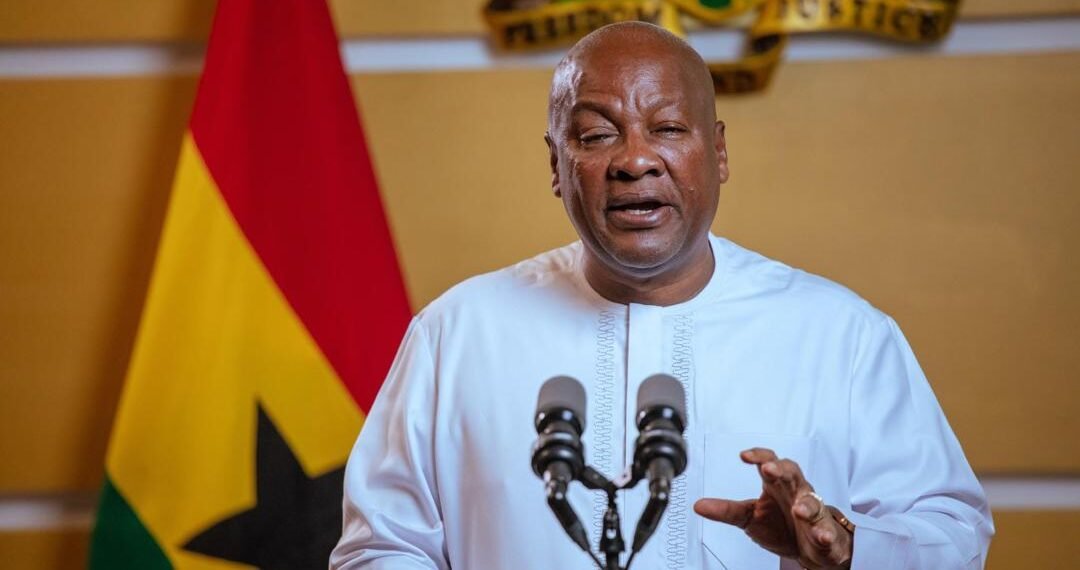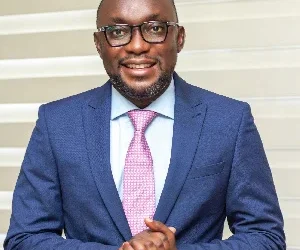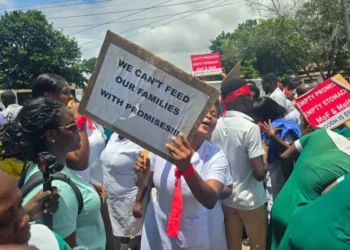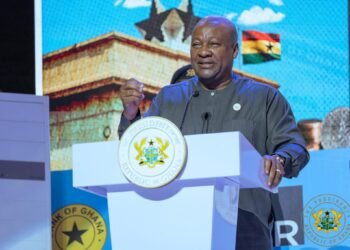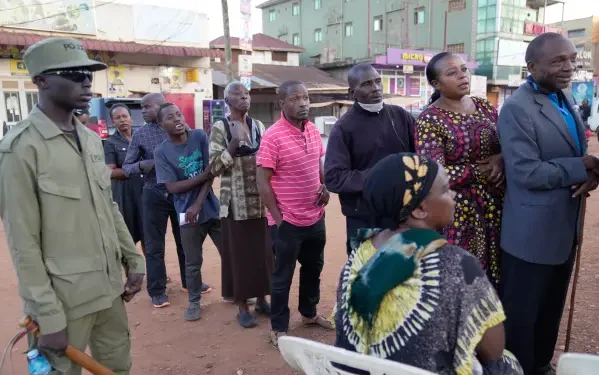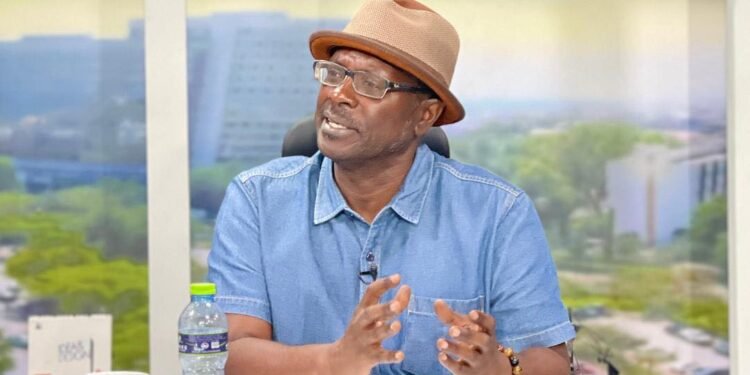President John Dramani Mahama has reaffirmed his government’s commitment to improving healthcare delivery in Ghana, announcing a significant rise in the national health budget for 2025.
Speaking at his Presidential Media Encounter, the President highlighted the central role of healthcare in his reset agenda and assured citizens that bold measures were being taken to strengthen the sector in response to growing demands and global health risks.
“Fellow countrymen and women, we’ve also turned our attention with equal urgency to the health and well-being of our people. In 2025 alone, the national health budget increased by 13.4%, rising from GHS 15.6 billion to GHS 17.8 billion, one of the most significant increases in recent years”.
President John Dramani Mahama
He explained that the substantial increment was designed to address longstanding challenges while building a resilient healthcare system capable of serving the needs of every Ghanaian.
A cornerstone of the government’s renewed push in healthcare is the decision to uncap the National Health Insurance Levy (NHIL) and inject massive resources into the National Health Insurance Scheme (NHIS).
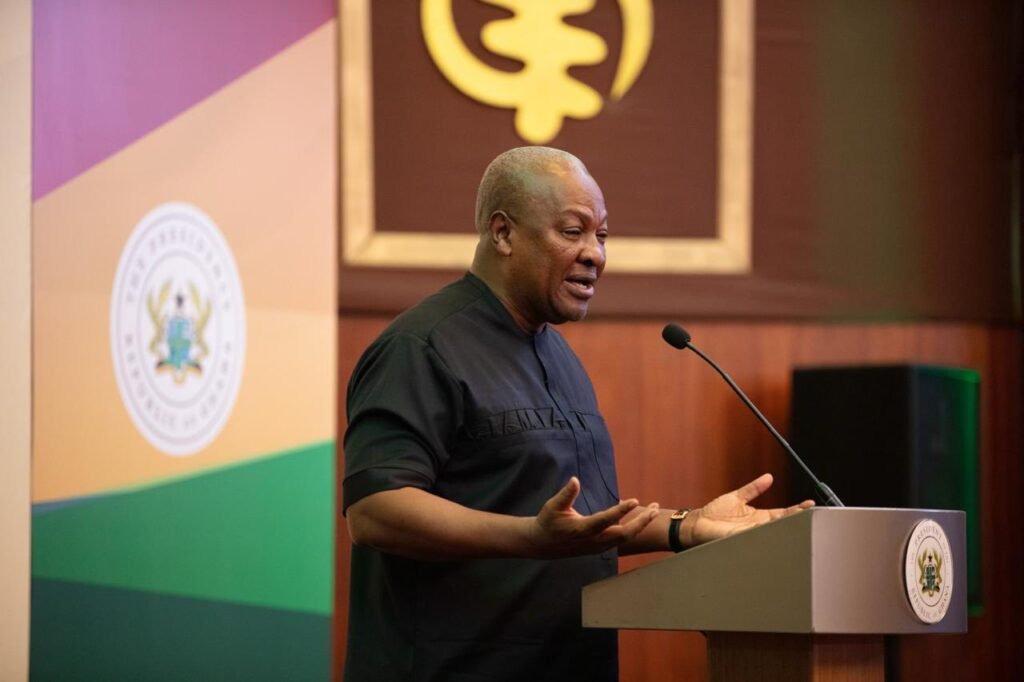
According to the President, funding for the NHIS has increased by 66%, moving from GHS 5.9 billion in 2024 to GHS 9.8 billion in 2025. He emphasized that the move went beyond figures, describing it as “not just a budget line, but a life-saving commitment.”
“These funds will help expand coverage, improve claims processing, and ensure that every Ghanaian, especially the poor and vulnerable, has access to affordable, quality healthcare”.
President John Dramani Mahama
Overcoming Aid Cut
The President acknowledged the financial challenges faced by the country following the sudden withdrawal of $156 million in U.S. aid that had previously supported critical programs in malaria, HIV and AIDS, and child health.
He admitted that the loss of such a significant contribution had placed immense pressure on the health sector. However, he noted that his government had taken decisive steps to safeguard essential programs.
“In response, we have readjusted our domestic expenditure priorities and ensured that the domestic safety nets are provided to cover the gap that occurred”.
President John Dramani Mahama
This, he said, demonstrated the government’s resolve not to allow external shocks to compromise the health and well-being of Ghanaians.
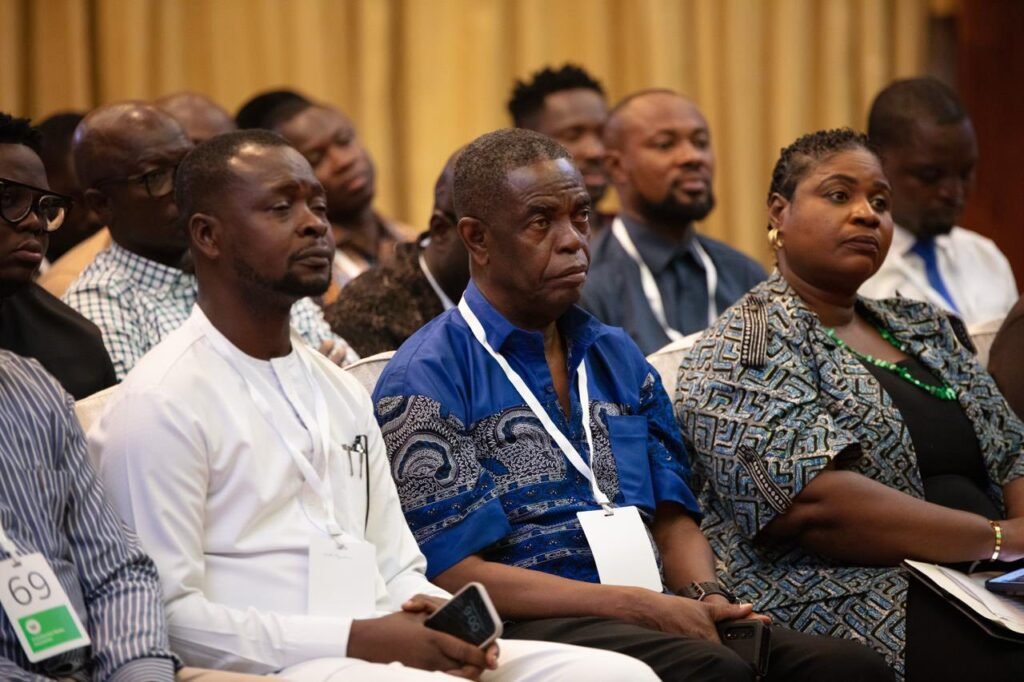
Investment in Healthcare Infrastructure
Beyond financing, the President placed emphasis on infrastructure development as a key driver of quality healthcare delivery. He revealed that the government was investing over two billion Ghana cedis in health infrastructure between now and 2028.
Of this amount, an initial allocation of GHS 200 million has already been made in the 2025 budget to fast-track the construction, expansion, and modernization of hospitals, clinics, and health centers across the country.
“Whether in remote rural communities or high-density urban centers, our aim is the same – a health facility within reach of every Ghanaian,” he stressed, underscoring the importance of equitable access to healthcare.
Touching on the much-discussed Agenda 111 hospitals, Mahama noted that the Cabinet was awaiting a report from the Minister of Health on the status and stage of completion of the projects. This, he said, would inform the government’s decision on the best way forward to complete them and ensure that the benefits reach Ghanaians.

The President used the media encounter to reassure citizens that healthcare remained at the heart of his administration’s development agenda. He reiterated his vision of a system that is not only accessible but also sustainable, resilient, and inclusive.
The announcements made at the media encounter are expected to have far-reaching implications for healthcare in Ghana. By increasing financing, boosting the NHIS, and channeling resources into infrastructure, the government is taking significant steps toward addressing systemic challenges.
However, much will depend on the timely execution of these commitments and the efficiency of institutions tasked with their implementation.
As Mahama emphasized, the road ahead is one of both promise and responsibility. The sharp rise in the health budget, coupled with the determination to close funding gaps created by donor withdrawal, signals a shift towards greater self-reliance.
The challenge now lies in ensuring that these investments translate into real improvements in service delivery and improved health outcomes for all Ghanaians.
READ ALSO: Chancellor Vows To Cut More UK Regulators

